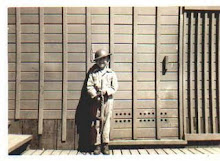Those of you who were educated in public schools are probably familiar with this myth, since this is what you were told was the truth by your teachers. Many of you may have even been forced to choke down the lies Sinclair spewed forth in this novel by having it included in your education as mandatory reading.
A note on Sinclair himself, he was a dedicated socialist who actually ran for Congress on the Socialist Party ticket. The guy was a complete mental case. I’m sure that wasn’t mentioned though in your history classes, where he is typically presented as a simple man who only wanted the best for America.
The Pure Food and Drug Act and the Meat Inspection Act were HEAVILY lobbied for by the large meat packing producers over the course of several decades. There was very little diseased meat being processed, and Sinclair’s novel is nothing but a bunch of total baloney. The mega meat packing corporations took advantage of the hype Sinclair had created with his novel of lies and finally rammed through a bill they had been trying to pass for decades.
The large meat packing corporations wanted this regulation for several reasons.
a) Government inspections added a large fixed operating cost to producers due to the administrative overhead. While this may sound counter-intuitive, this effectively serves as a large barrier to entry into the meat packing business. The smaller packers do not have the economy of scale to be able to absorb this fixed cost so they end up being run out of business by the large producers because the small guys necessarily need to raise the price of their meat higher to account for the additional cost.
b) The Europeans at the time had begun barring meat imports to protect their own meat producer’s profits under the guise of “diseased meat” being imported. So the Europeans were requiring that imported meats undergo an inspection process. Thus, the US meat packers had to have their meat inspected anyways by private inspectors if they wanted to be able to export their meat. By lobbying the US government to inspect their meat, the large US meat packers could pass the cost of this inspection process that had to happen anyways, on to US tax payers. This served to socialize inspection costs for the large US meat exporters.
Since the smaller producers did not generally engage in export, they didn’t bother to have their meat inspected – thus, the smaller producers were able to compete with large producers in local markets. By forcing all meat packers to undergo inspection, the government basically ran the small meat packing operations out of business.
c) The inspection seal effectively serves as a fantastic marketing gimmick. It provides a false sense of security to US consumers and legitimizes the meat processed as being approved by the US government.
Jonathan Ogden Armour, President of Armour and Company, one of the largest meat packing corporations in America, wrote the following in a March 1906 Saturday Evening Post article:
“To attempt to evade government inspection with beef from a purely commercial viewpoint is suicidal. No packer can do an interstate or export business without government inspection. Self-interest forces him to make use of it. Self-interest likewise demands he shall not receive meats or byproducts from any small packer either for export or other use unless that small packer is also official (under government inspection.) This government inspection thus becomes an important adjunct of the packer business from two view points. It puts the stamp of legitimacy and honesty the packer’s product, and so is to him a necessity, and to the public as an assurance against diseased meats.”
Folks we have to wake up… The government can’t keep you safe from anything and is ALWAYS used by big business as a tool to suppress competition, enact monopoly privileges, and otherwise loot the public to no end. It should be blatantly obvious to anyone with half a brain that as government has grown, so has the wealth disparity. There is a clear reason for this. Government creates the wealth disparity by granting monopoly privileges to corporations through contracts and patents, by subsidizing industry and bailing them out, and by enacting regulations which serve as barriers to entry.
Go TO: Toxin







No comments:
Post a Comment